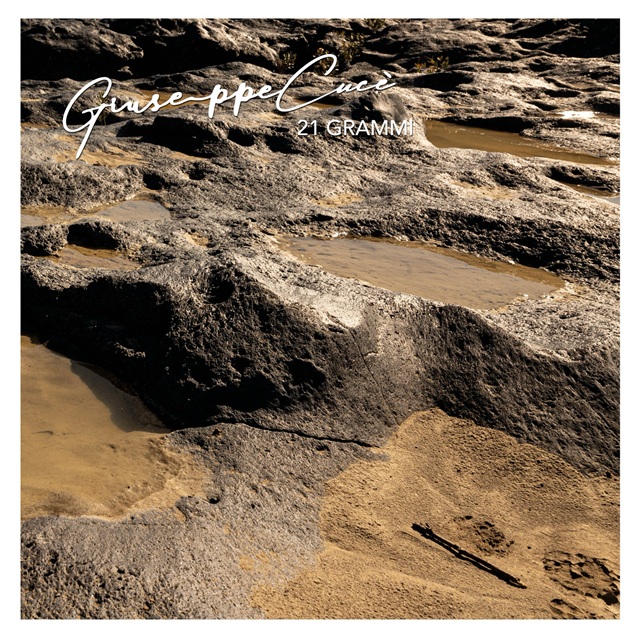Giuseppe Cucé – ’21 Grammi’

Giuseppe Cucé’s new album 21 Grammi is a profoundly human conceptual success from the Sicilian singer-songwriter, built around the mythical “weight of the soul” and the immeasurable forces that shape the human experience. Produced by Riccardo Samperi, the record is a dynamic charmer, crafting an intimate yet expansive world that spans from string-bolstered balladry like “Cuore d’inverno” to bustling pop vibrancy, as evident on the opening track. It’s a work that turns artfully existential questions into song, inviting listeners into a poetic space between body and spirit.
Opening the album with vibrant charm, “È tutto così vero” moves colorfully on woodwind flourishes and brassy enthusiasm — complemented by a dynamic vocal presence that seamlessly spans from debonair more spoken-word introspection to charismatic vigor: “È tutto così vero / Quando passa la primavera.” The lyrics weave a memory-laden journey with escapism on the mind, framing each moonlit reprieve and night-out as a fleeting antidote to the lingering “veleno” of the past.
Ensuing track “Ventuno” struts a more intriguing rock allure, enveloping with steady guitar jangling and subdued vocal builds. Mmm-ing vocal harmonies and organ-touched brightness make for an especially riveting sequence, inducing replays with its dreamily inviting rock production. Its lyrical prowess also plays as a central concept track within the album. Drawing directly from the artist’s idea of measuring emotional weight through the body, the song stirs in its poetic anatomies of expectation. The comparison of the soul to various parts of the body proves poetic and affecting: “Le anime sono due grammi di seni / Due grammi di gambe due grammi di braccia.”
Another standout effort comes in “Cuore d’inverno,” seamless in its navigation from heartrending string-forward ethereality into an effervescent emotive outpouring, bolstered by twinkling piano as the orchestral elements persist amidst a rousing guitar progression. The song navigates a relationship built on “instabili equilibri,” in its jubillant core, followed by an emotional core that emerges around the existential pivot of “L’infinito non esiste / e non esiste l’attimo,” — suggesting that love’s harmony and fracture can only be felt in a constantly shifting present.
“Di estate non si muore” stands out as well, particularly in its melding of stately piano and synth-forward glistening. A funky, infectious hook arrives following the climactic art-pop fervor, delighting across both rainy-day piano infusions and buzzing synth/guitar interplay. 21 Grammi is abundant in quality songwriting, showcasing Giuseppe Cucé’s ability to craft all of heart-tugging ballads, rousing rockers, and bustling pop-ready immediacy.
The post Giuseppe Cucé – ’21 Grammi’ appeared first on Obscure Sound: Indie Music Blog.
